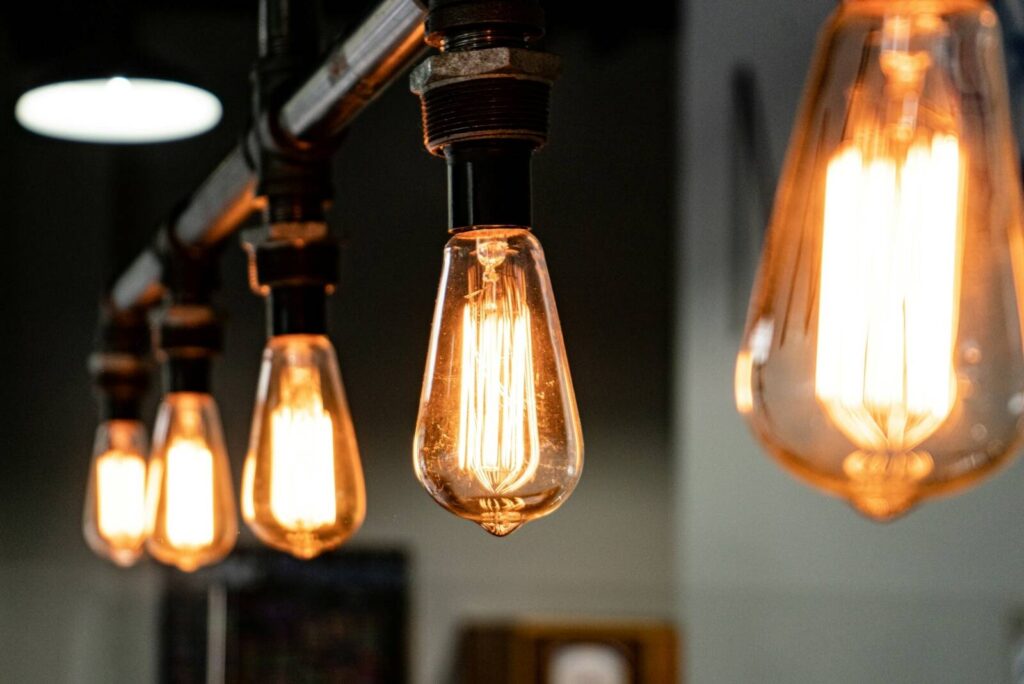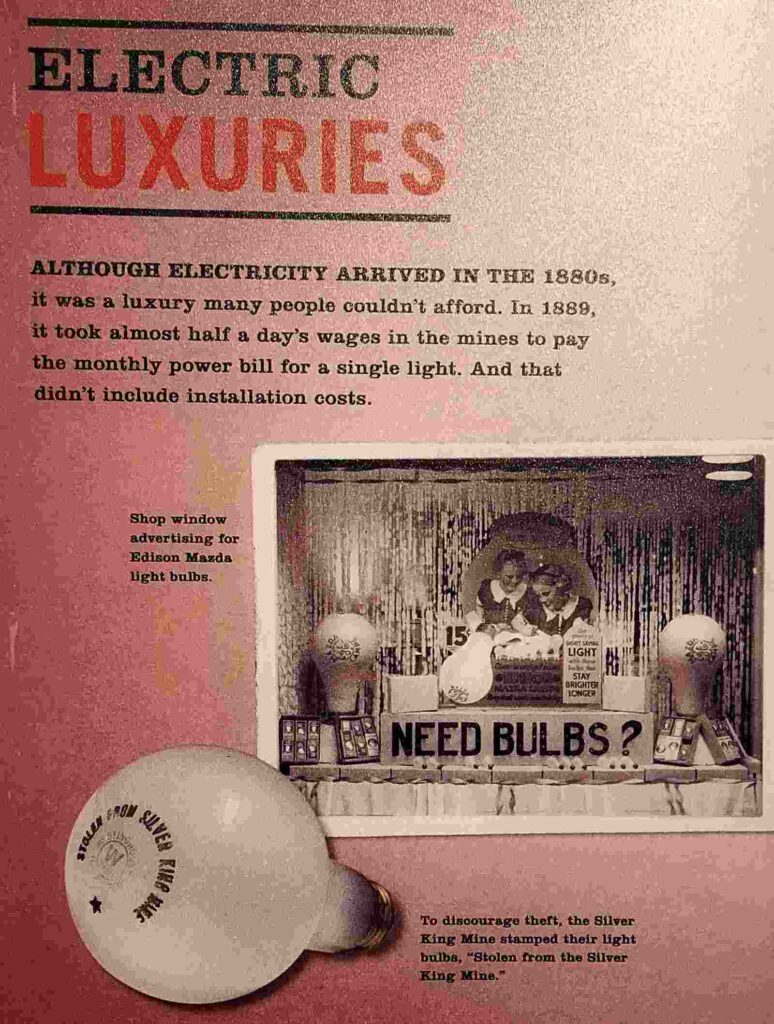
Thomas Edison is perhaps best known for inventing a commercially viable electric light bulb. But his genius is best demonstrated by connecting that invention to another innovation of his day: the electric utility.
A year before inventing and patenting his incandescent bulb, Edison had already formed the Edison Electric Light Company in New York City with J.P. Morgan, members of the Vanderbilt family, and other financiers. Then in 1880, the same year he found a filament that could last more than 14 hours in his incandescent bulbs, he began commercial distribution of electricity from a centralized 110-V DC power station.
His bulbs were not cheap. They cost a day’s pay for some workers (about $23 in today’s money). But even that expense paled in comparison with the cost of powering the bulb. Paying the electric bill for a single bulb could cost about a day’s wages every month!

Real Money: Not In Light Bulbs, But In Utility Companies
Edison knew that the real money was in electricity distribution. In 1878, the California Electric Company (now PG&E) began using two direct current generators in San Francisco to supply multiple customers with power for their arc lamps (a predecessor of Edison’s incandescent bulbs). CEC soon opened a second plant with four additional generators. The race to create distribution companies with natural monopoly power was on.
It wasn’t long before electric utilities like Detroit Edison Co started giving away new light bulbs for free to customers who brought in their old, burned out bulbs, providing further proof that the utility monopoly was much more valuable than the lights they powered. Utilities heavily promoted electrification to enhance their sales and profits. Here’s a sample of what those early electricity commercials looked like:
State regulators took notice of abuses of monopoly power by the utilities. But electric companies bypassed state regulation by establishing interstate holding companies. It wasn’t until 1935 — more than 50 years after the first utilities were formed — that Congress passed the Public Utility Holding Company Act and the Federal Power Act to curb the abuse of monopoly power on a national level. The efforts to promote electric consumption to profit from higher electricity sales continued until the 1970s and beyond.
How Solar Helps Us Rethink Our Relationship With Our Electric Utiliy
Today, electrification is being promoted not to fatten utility profits, but to achieve climate goals. And with distributed energy technologies like solar and storage batteries, we’re rethinking our relationship with the electric utility. Instead of simply relying on utilities for energy and paying whatever rates they negotiate with regulators, solar customers at times generate power for the grid, and at other times they consume electricity from the grid. Net metering requires utilities to accept power from qualifying solar systems on roughly the same terms that they deliver the power.
Electricity is now more of a staple than a luxury. And Uprise customers are part of an enormous shift from monopoly power to true interdependence. They save money in the short term, are less susceptible to rate increases down the road, and with battery storage can exercise much greater control over their energy costs. Going forward, in a remarkable rebalancing of economic power, utilities will increasingly rely on their customers to help manage electrical loads.
However, because utilities still own the power lines, the balance of power between utilities and customers is always in danger of shifting back toward the utilities.

Get Involved!
Washington DC is fortunate to have strongly climate-friendly policies, and Uprise Solar has proudly supported efforts to achieve the city’s climate goals. But the city needs to remain committed to its targets despite budgetary challenges. If you’d like to get involved, the District of Columbia chapter of the Sierra Club is organizing locals to testify at an upcoming Department of Energy and Environment hearing to support funding for families to transition away from fossil fuels and toward electrification. The hearing is on April 29; you can find out more information here.
And be sure to vote for local representatives who support climate action!
When you acquire solar from Uprise, you join a movement toward a cleaner, smarter, and more equitable DC. Call us at (202) 280-2285 or schedule a consultation below to start your solar journey. Welcome to the future of energy!
Schedule Consultation
Uprise Solar is dedicated to providing affordable and accessible solar solutions for both residential and commercial properties in the DC, Maryland, and Virginia area.
"*" indicates required fields
